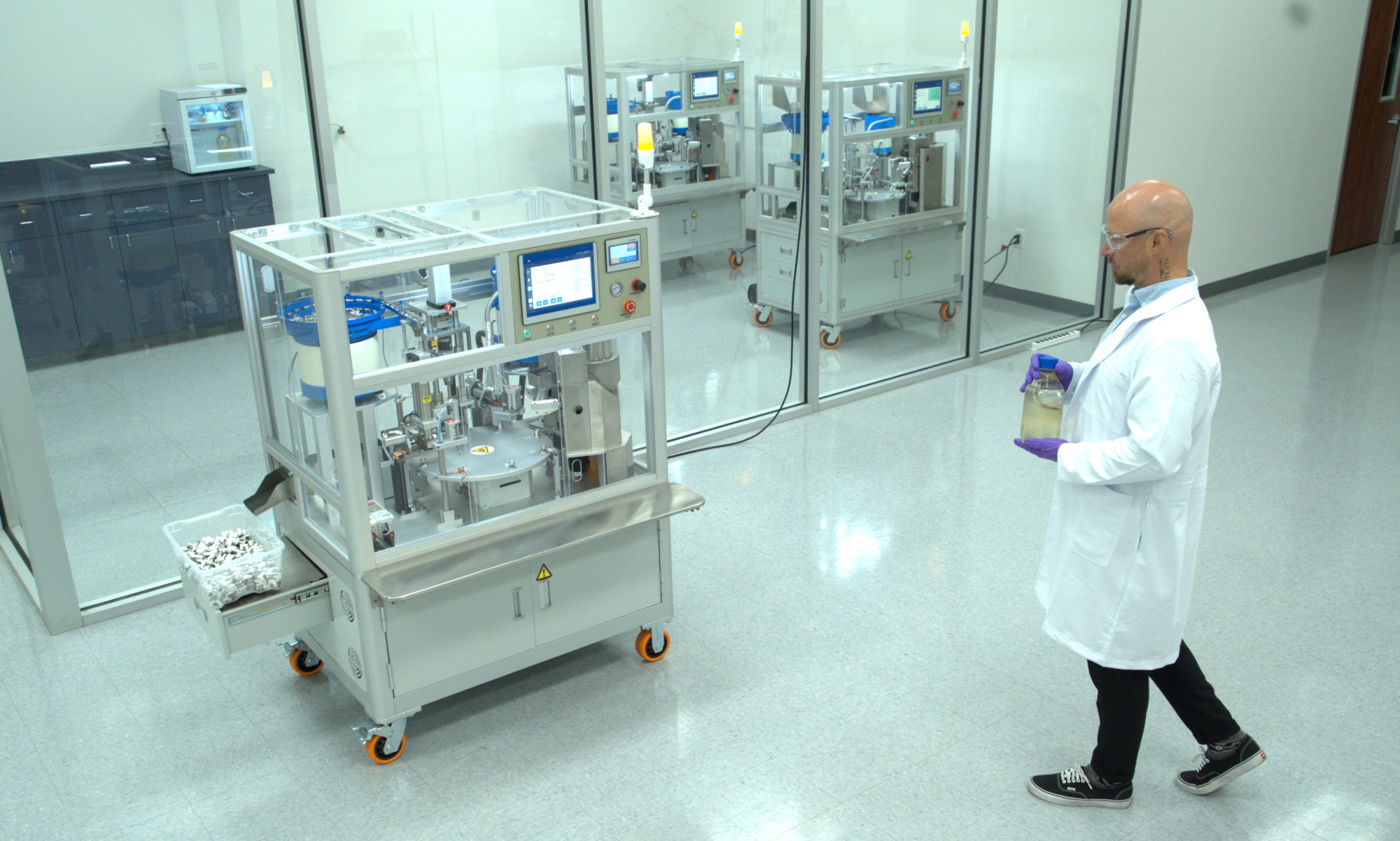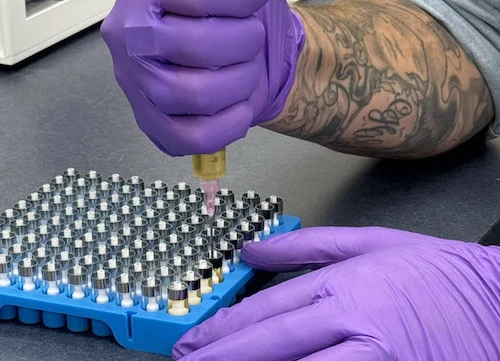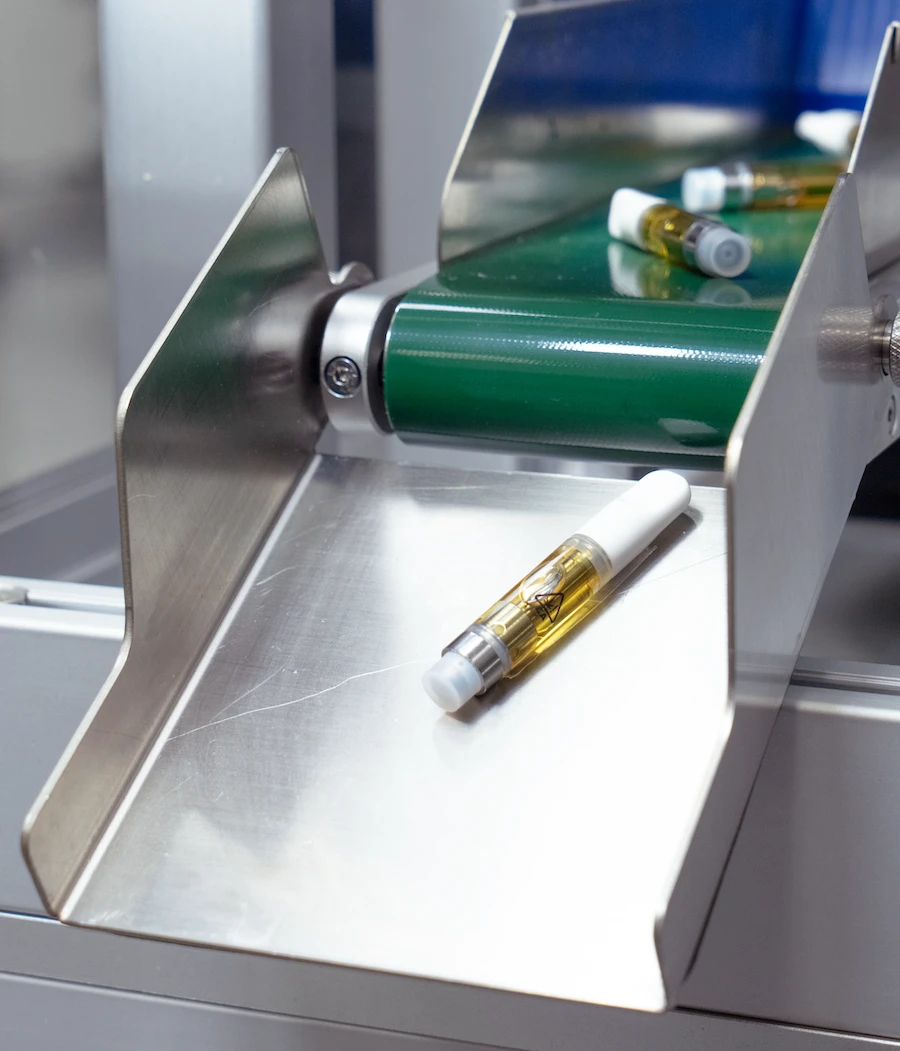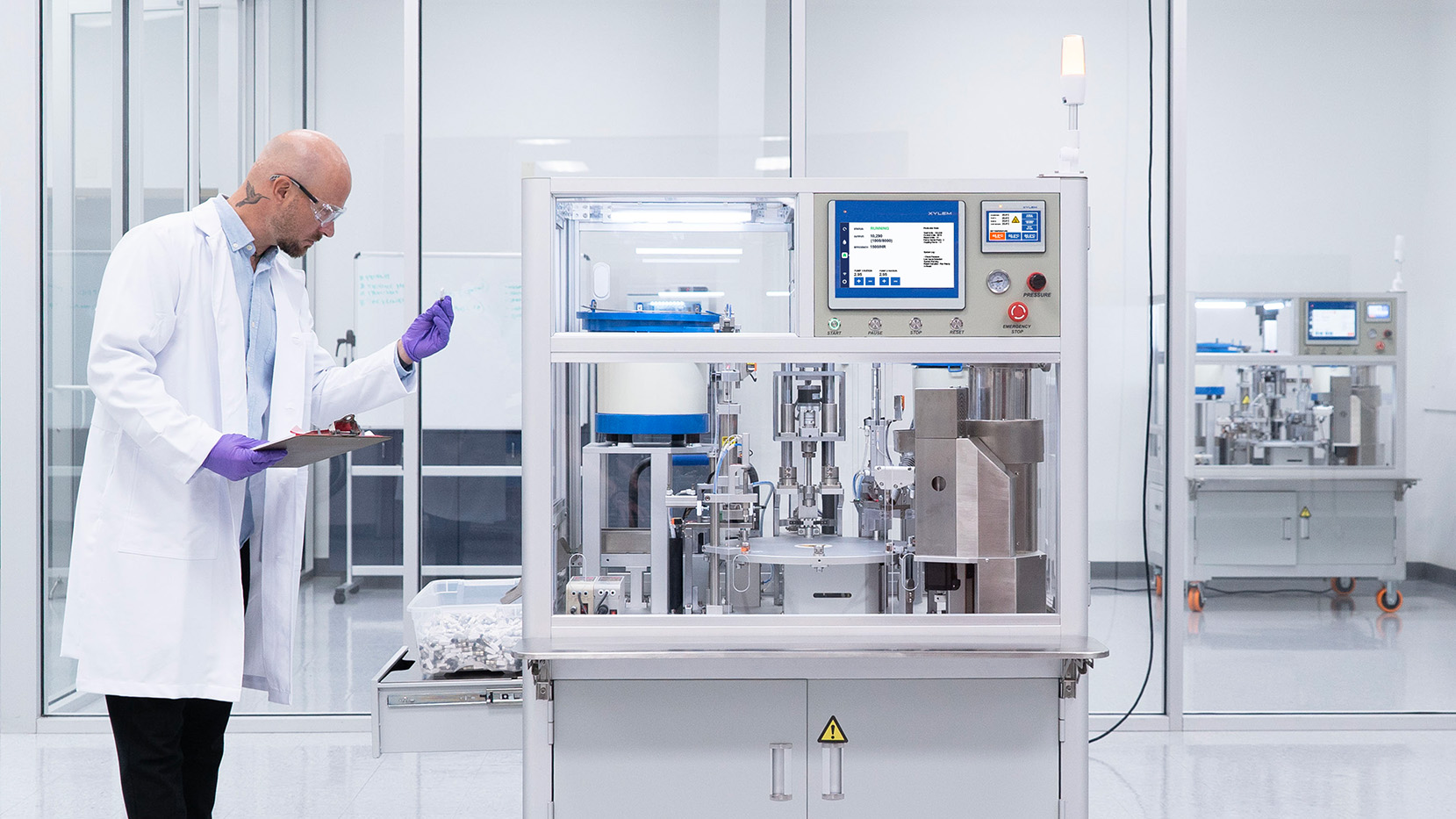Automation has arrived in cannabis manufacturing, not as a concept or a future promise, but as the current reality of production. Across the industry, machines are taking on the repetitive, time-consuming work that once relied on manual labor. From pre-roll infusion to cartridge filling, automation is doing what it was designed to do – reduce labor costs, increase throughput, and improve consistency. For workers, this means fewer entry-level opportunities and smaller production teams. For operators, it means a more efficient business model that can finally scale.
-
Vape Filling
A family of automated vape cart fillers, that provide both cart filling and integrated capping solutions for cartridges and all-in-one vaporizers for companies of all scales.
-
PreRoll Infusion
Force Protection
Automated preroll infusion system, that provides high machine uptime and is compatible across cones, strait prerolls, blunts -- all in a simple and easy to operate platform.
-
Full Production Automation
Full Vape Manufacturing Line
Fully automated filling, cleaning, QC, and packaging all in one line in the fastest, most efficent and lowest cost production method available.
-
Vape Packaging
Automated Cart Packaging Systems
Automated bagging and boxing systems tailor-made for vape carts CRP packaging requirements for high efficency commercial production requirements.
-
Resources
Technical Resources
-
Support
System Support
Xylem offers full-service, commisioning and install of equipment and on site training of operators for next-generation cart fillers.




